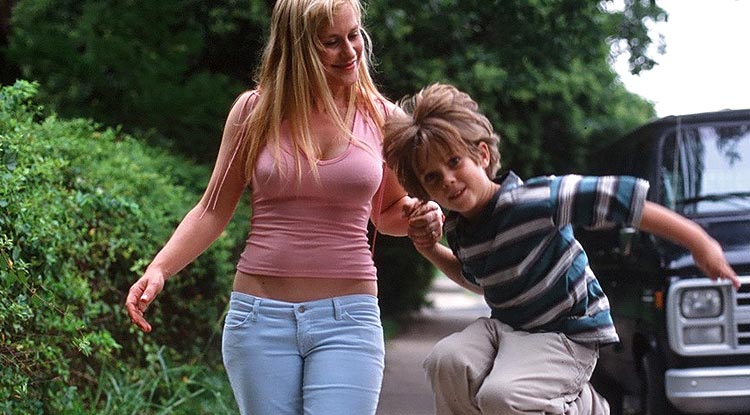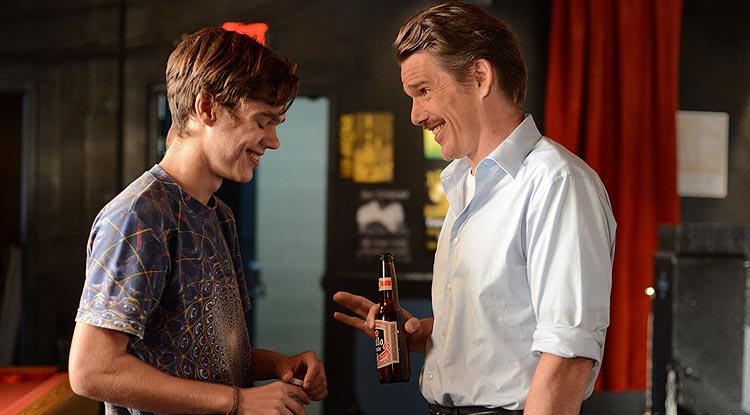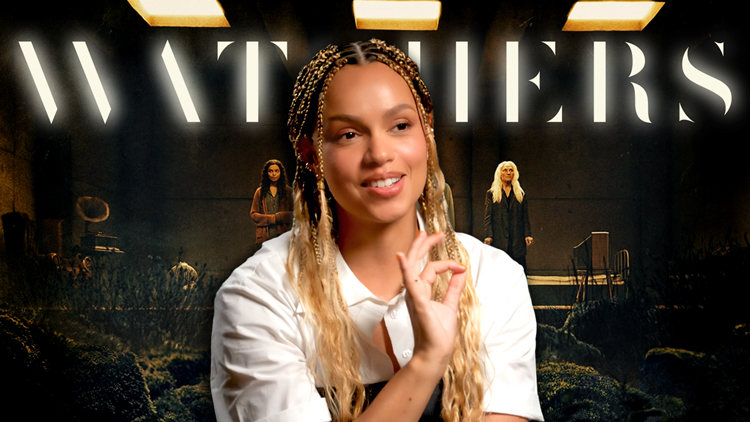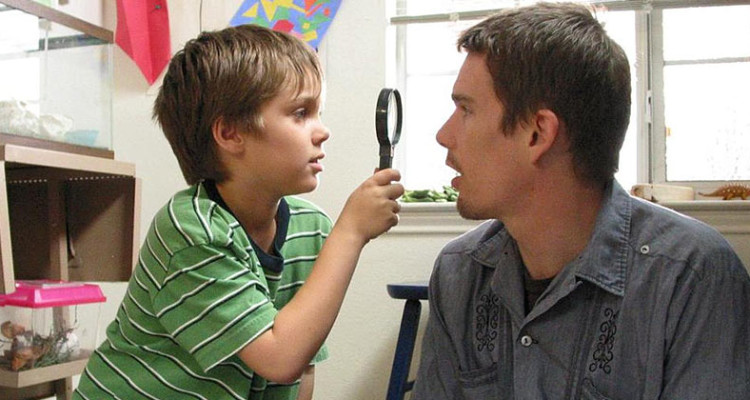By Enrique Pedraza.
“Boyhood” represents the cultural invasion of ideas and thoughts that torment a boy who’s been living in between lines of disorientation. There are impressive details about this film and its making. Its most obvious is that it took twelve years to complete. But what’s really captivating about “Boyhood” it is not seeing the actors age but how they manage to continuously be immersed in singular and particular personalities over the course of the twelve years, solidifying characters that are passionate and remarkably genuine.
Our protagonist is Mason Jr. is beautifully performed by Ellar Coltrane. He comes from divorced parents Olivia and Mason and has a sister named Samantha. He and his mother and sister have an unstable lifestyle, moving constantly and being forced to live with drunken stepfathers that prevent their personalities to shine. Mason, their birth father (Ethan Hawke) is close to them and it seems he genuinely enjoys spending time with them. He’s charismatic and full of energy, qualities that heavily contrast to both Mason Jr. and Samantha. He is often passive and self-absorbed while she’s simply uninterested in conversations that exclude herself or her opinions.

The mother, Olivia (Patricia Arquette) is probably one of the most fascinating characters in the film, and the one that probably changes the most throughout. At the start of the story, she’s extremely vulnerable and really unaware of her kids’ expectations. She loves them deeply but her lack of economic stability plus lack of personal achievements create a distance between herself and motherhood, showing little interest in spending time with her children. But as the film progresses and she’s able to fulfill her professional desires, she’s more open, understanding and pleased with her life, transforming into an exemplary and valuable asset in Mason and Samantha’s lives.
The cultural references throughout time are emotional, allowing the audience, no matter their age, to constantly remember and embrace their past. Whether it’s through music, fashion, language or technology, there’s a fascinating fluidity in the progress of the film and how the characters evolve from one period to the next. Memories from the past keep us motivated to keep discovering and wondering where the story will end in the future, so even if the film is almost three hours long, there’s not a moment of concern or anxiousness towards it feeling slow or tedious.

The film’s most valuable power is definitely Ellar Coltrane and his performance, so quiet, subtle but incredibly hypnotic. It is interesting to see how slowly he begins to discover himself, what he likes and what he thinks of the world. His character is obviously different from the mainstream American boy portrayed in movies, being instead the reflexive, sympathetic, philosophical type. Mr. Coltrane is effective in showing Mason’s insecurities and obscured desires towards love and his artistic attributes, permanently making the audience debate his intentions and even his sexuality.
The way Richard Linklater wrote the film is remarkable. It is so special to encounter characters that are similar to us and that aren’t so specific to worldwide stereotypes, but rather characters that live in that enigmatic middle range that is not often talked about. The range of people that want to find deeper meanings, that want to establish complicated and asserted conversations about existence, that care for more than attempting to live a life. The dialogue is culturally relevant and appropriate to what childhood and adolescence really mean and what exactly goes through our heads. It is not only about sex and experimenting with our identity, but rather a process of questioning our existence and finding the purpose we’re supposed to fulfill.
In terms of the structure, even though the film is emotional and filled with bright and inspiring moments, you can’t keep wondering how it would’ve felt if the story wasn’t lineal or static. The transitions are all very clear, evident in the actors physical appearance. But what if the story was told merely through the perspective of the boy, not necessarily since he was a kid until he becomes a young adult, but rather detaching itself from following the linear context of our lives? Film has the power to question and debate our reality and so the character’s insecurities, his feelings of disinterestedness and his extreme passiveness are all great sources of inner dialogue and self examination that could’ve easily traveled the world of surrealism.
“Boyhood” is now playing in theaters nationwide.





